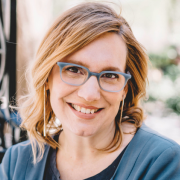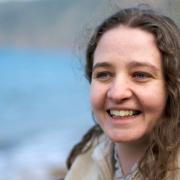Letting go of the reins: risks and new adventures
The past year brought us all challenges but it has also given us freedom in many ways. During the pandemic many museums felt that they were able to (and perhaps had to), take more risks than they would have done otherwise. Our panellists worked with new partners in order to access audiences while their museum doors were closed.
These partnerships resulted in our organisations trying new things, working in new ways and handing over the control, giving our partners ultimate responsibility over the quality control.
Did your organisation try something similar? Did you let go? What did you learn? What did you have to sacrifice? Together we’ll unpick the pros and cons of such projects and see what we can learn from each other when we let go of the reins.
Our varied panel will discuss the risks inherent to the practice of co-production or co-leadership, presenting their case studies with pros and cons, before the moderator leads a discussion about new partnership models.
Facilitator
Canadian Museum of History
Session speakers
Peter Trevitt Consulting Ltd
There has been a gradual trend over the years towards more STEM engagement work being done by universities and corporations often working directly with schools and the curriculum. I will briefly share some of the experiences working to forge stronger links between science centres and universities in particular, and how recent experiences around Covid, BLM and #MeToo may be changing the dynamics of these relationships.
Co-chair, International Committee of Exhibition Exchange
Washington, DC
United States
I was the CEO of a children's museum until I lost my job due to COVID. I took two big partnership risks- risks that had a potential positive financial impact, but that meant giving up the reins. I will discuss how these two partnership- one educational and one programming - both provided the income we needed but put strain on the museum identity. What is more important?
At the Universum Bremen, Germany, we have tried out various partnership models for the development and realization of special exhibitions in recent years. In each case, they enabled us to sharpen the content, at the same time demanded a willingness to compromise and brought us economically interesting collaborations. Each model of cooperation can also be interesting in the future, depending on the exhibition topic, one's own expertise and the respective economic possibilities and limits.
Head of Public Engagement
Newcastle upon Tyne
United Kingdom
During the coronavirus pandemic Life Science Centre, like many other venues, closed the doors. In a bid to continue to reach audiences at a time when many families needed the support Life worked with new collaborators bringing both exciting opportunities and different challenges. Elin recalls two projects where letting go of the reins and working with new collaborators meant losing control of the delivery but gained a much larger audiences than Life could have reached alone.





